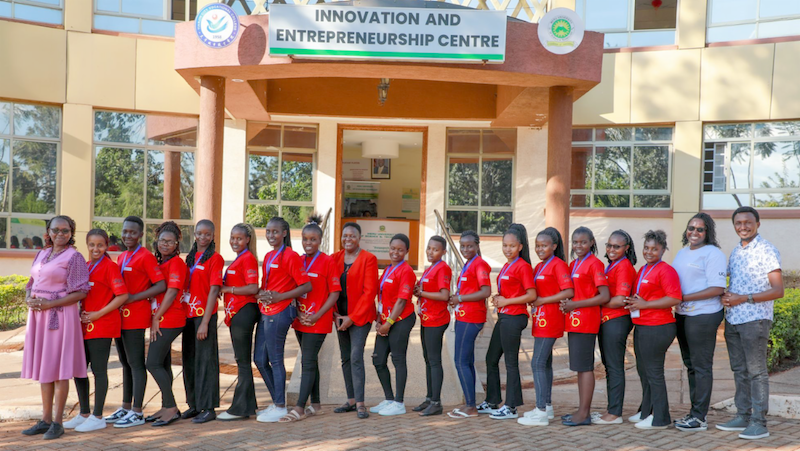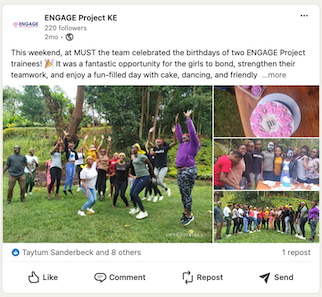
The ENabling Girls in AI and Growing Expertise in Data Science (ENGAGE) program, spearheaded by the University of Nairobi, is a groundbreaking educational initiative aimed at empowering young women in Kenya through specialized training in data science and machine learning. Over the next five years, with support from IGHS’s Informatics Hub, ENGAGE intends to equip more than 800 girls and young women spanning from secondary school to diploma and degree level with technical skills in Data Science, Machine Learning and AI for Public Health.
In today's job market, skills in data science and machine learning are in high demand. However, women represent only 22 percent of artificial intelligence professionals globally, with even fewer in African countries. This lack of diversity can lead to biases in machine learning algorithms, as modelers may inadvertently embed their own assumptions, perpetuating stereotypes and hindering equitable access to resources and opportunities. By training a new generation of skilled professionals, ENGAGE aims to diversify the fields of data science and machine learning. The project’s mission is to empower and educate girls and young women to become leaders in data science and public health within their communities.
The program commenced this past spring with a launch event that brought together attendees from six partner universities, including trainers, mentors and project team members. The first group of trainees were 90 students hosted in the six partner universities. ENGAGE is a three-tiered curriculum approach: Tier 1, a beginner level for secondary school girls; Tier 2, an intermediate level for STEM diploma holders; and Tier 3, an advanced level for undergraduate degree students. The launch event conducted in August 2024 was for the Tier 2 and Tier 3 students. The training was for 20 days, followed by a six-week internship program in departments of health at the local levels, health facilities, pharmacies and other community-level organizations. The internship provided hands-on learning experiences for the young women and opened up a network with potential employers. The overarching goal at each level is to equip Kenyan women with the skills necessary to secure well-paying jobs and establish stable careers while simultaneously improving health outcomes in their communities.
This initiative is a collaboration between the University of Nairobi (UoN) and UCSF’s Informatics Hub. The implementation of the project is rolled out in partnership with the following regional universities in Kenya: Kabarak Unviersity in the Riftvalley region, Jaramogi Oginga Odinga Unviersity of Science and Technology in Nyanza and Western regions, Meru University of Science and Technology in Eastern region, Dedan Kimathi University of Technology in Central Region, South Eastern Kenya University in lower eastern region and the Pwani University in the coastal region. Using this multiplier effect, the ENGAGE project is reaching students from the entire country and providing opportunities for girls and young women from vulnerable and under-served communities away from the capital city of Nairobi and other larger cities in the Country. This approach opens up a world of opportunities for girls and young women who would previously not be aware of a career in data science and AI. Professor Julius Oyugi, the Principal Investigator for the program and the Director of with the Institute of Tropical and Infectious Diseases (UNITID) at UoN, stated, “Our expected outcome is to see more women in leadership roles in health data, more women scientists influencing public health policy, and a reduction in existing biases.”

